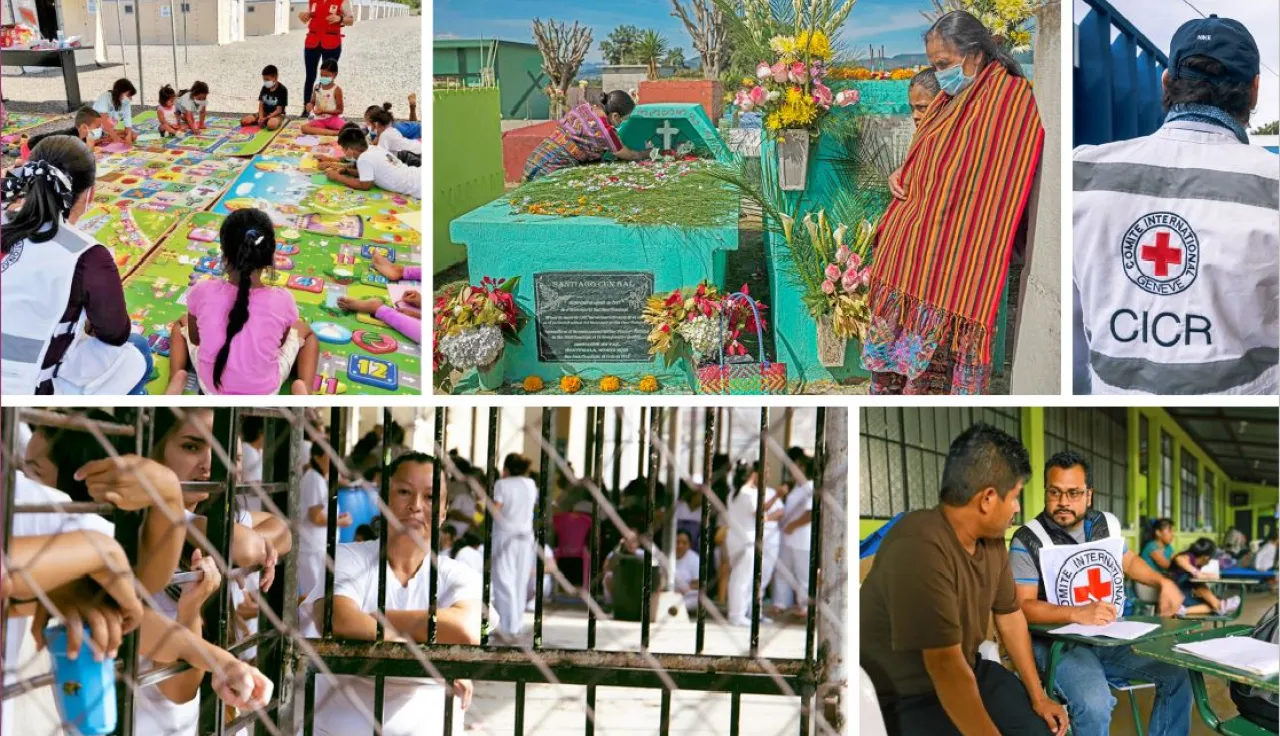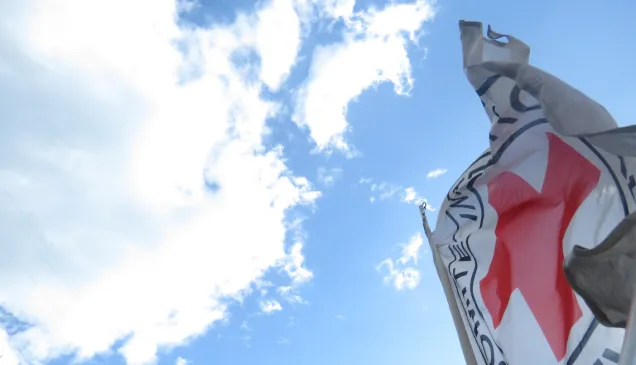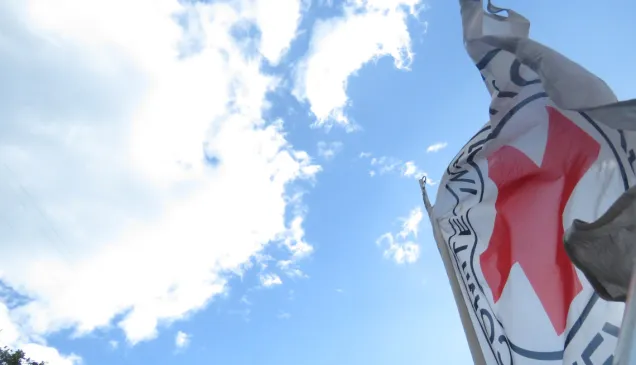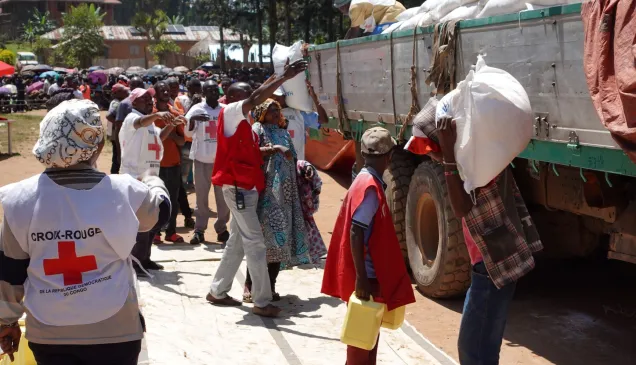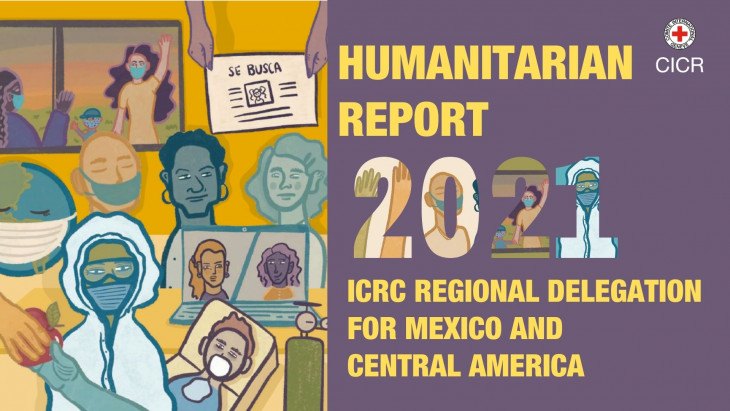
The full report is available here
The Regional Delegation of the International Committee of the Red Cross (ICRC) for Mexico and Central America has presented its 2021 Humanitarian Report, which details its concerns over the exacerbated humanitarian needs in the region this year due to the impact of the COVID-19 pandemic and the hurricanes in Central America, which have increased the vulnerability of communities already riddled with violence. To overcome these challenging times, the institution stresses the crucial importance of a coordinated action between humanitarian organizations, states and civil society, to help weather the pandemic and decrease the impact of violence.
"Without a doubt, our greatest hope in tackling this pandemic is vaccination. Now that we have seen positive developments in this regard, it is crucial that vaccines be distributed universally, free of charge, without any form of discrimination and with utmost priority to the most vulnerable parts of the population," said Jordi Raich, head of the Regional Delegation of the ICRC for Mexico and Central America. "It is essential that vaccines be accessible to all and do not give rise to further inequality. This means that governments must take migrant populations, displaced persons and persons deprived of liberty into consideration and ensure they be included within vulnerable groups."
Raich added that one of the most pressing challenges on a regional and global level is tackling the pandemic, which is aggravating inequality and accentuating the consequences of violence. "The vaccines are here. Whether or not everyone will be safe from COVID-19 depends solely on us, because no one will be safe until everybody is safe."
The head of the ICRC in Mexico and Central America acknowledged that putting an end to the "other epidemic"—in reference to violence—is a much more complex challenge that requires urgent, short-term action as well as sustained efforts over time. He went on to express his concern over the persistence of visible and invisible consequences of violence—such as murders, disappearances, internal displacement, movement restrictions, extortion, mental health problems and limited access to basic services such as healthcare or education—across the region.
Raich also claimed that 2021 will be a challenging year for humanitarian response in areas where violence rates continue to bring suffering to the population: "The possibility of an increase in inequality, displacement, migration, and consequently the risk of family separation and disappearances, is undeniable."
Present on the field, close to those who need us most
The Humanitarian Report summarises the work that the ICRC carries out in the region alongside the National Societies of the Red Cross, local authorities and civil society organizations. It also puts forward the main humanitarian challenges for Mexico and Central America in 2021. The institution has permanent regional offices in Mexico City (Mexico), Tegucigalpa and San Pedro Sula (Honduras), San Salvador (El Salvador), Guatemala City (Guatemala) and Managua (Nicaragua).
Last year, thanks to our coordinated action with the region's National Societies of the Red Cross, the ICRC directly supported over 200,000 people, while hundreds of thousands more benefitted indirectly from our support for other organizations, thanks to advocacy efforts or structural changes brought about by our interventions.
In 2020, the ICRC conducted 89 visits to 39 detention centres in the region, including migration stations, benefitting over 40,000 persons deprived of liberty. It also helped over 66,000 people restore or maintain family contact through toll-free phone calls, provided safe shelter and food to 472 people who had been displaced due to violence in El Salvador and Honduras, and supported the physical rehabilitation of over 1,227 people (migrants and victims of violence) through prosthetics, orthotics and therapeutic treatments.
Among other actions, the ICRC provided support to 104 collectives representing the families of missing persons in Mexico and Central America and helped locate 192 people who were declared missing in the context of migration, natural disasters and other humanitarian incidents. It offered medical assistance to 31,888 migrants through 12 assistance centres operated by the National Societies of the Red Cross in Mexico, Honduras and Guatemala. The organization also deepened its dialogue with the armed and security forces officials regarding the use of force and human rights international standards.
The response to the impact of violence in the region will continue to be the ICRC's main focus throughout 2021, in order to minimise the humanitarian consequences faced by the most vulnerable groups: migrants, displaced persons, families of missing people, healthcare professionals, communities affected by violence and persons deprived of liberty.
Follow us on social media:
Facebook.com/CICRDRMX
Twitter @CICR_DRMX
Instagram @cicr_mx

